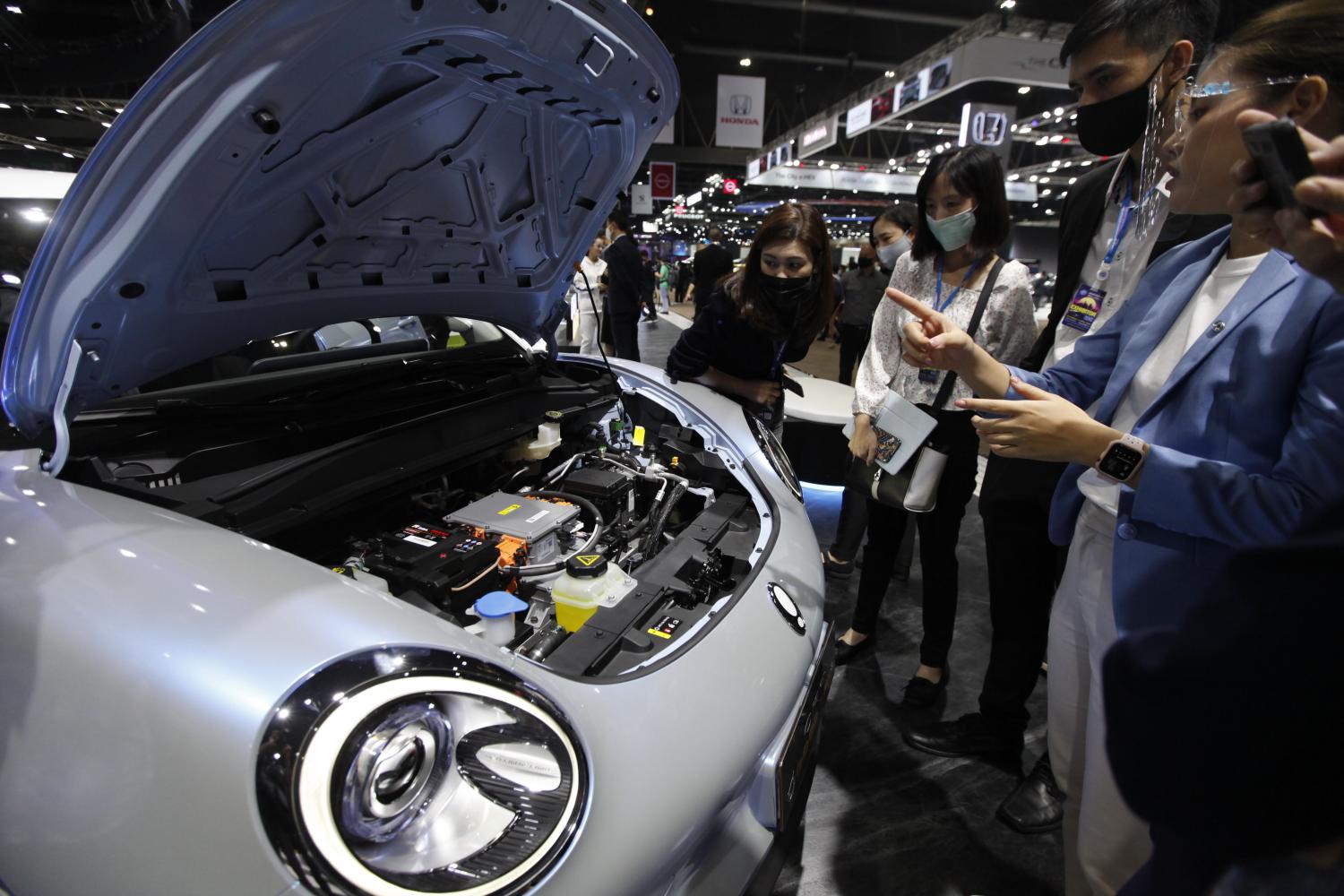
The Finance Ministry will maintain a balance between supporting existing manufacturers of internal combustion engine-powered cars and promoting electric vehicles (EVs) in its restructuring of the overall vehicle excise tax system, said a ministry source who requested anonymity.
The source added that the tax restructure might be gradually implemented to give existing domestic vehicle manufacturers time to adjust to changes in relation to the country's promotion of EVs.
The source said that last week representatives of Toyota Motor Thailand held a video conference with Finance Minister Arkhom Termpittayapaisith and the ministry's management team on the Excise Department's plan to overhaul the vehicle excise tax system to promote EV use.
Toyota is one of the major foreign car manufacturers to operate in Thailand, with a vast supply chain network in the country.
The source added that the ministry is expected to introduce a measure to support the import of finished EVs next year, with the of aim of promoting affordable EVs in Thailand. Chinese EV manufacturers are expected to reap the full benefit of the measure, thanks to 0% duty on the import of EVs from China.
Earlier a source on the National Electric Vehicle Policy Committee said the finance ministry is ready to approve measures to promote the use of EVs, which are expected to significantly bring down the prices of imported EVs.
Once EV demand increases, this will be an incentive to the related companies to install charging stations and ensure that almost all newly registered vehicles in 2030 are EVs.
The government's target is for 30% of all cars used in Thailand to be EVs by 2025.
The country's current vehicle excise tax structure is based on engine power and carbon dioxide emission rates.